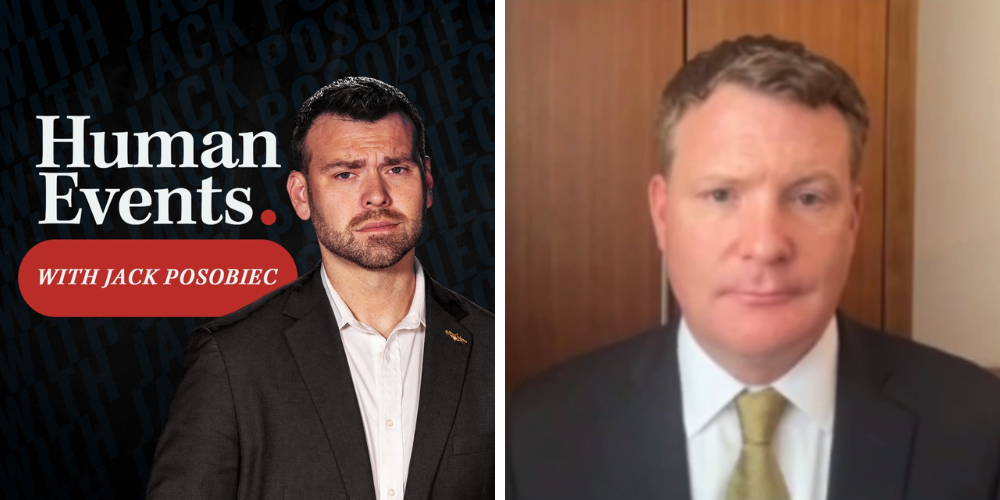If you watched George Bush's first Treasury Secretary Paul O'Neill's self-serving "60 Minutes" interview, in which he spewed venom at his former White House colleagues, you know all that was missing was his clown outfit.
By far the best moment of the evening came when Leslie Stahl asked if he felt any tinges of guilt for the blindside kidney punches he was throwing at President Bush. O'Neill coyly played dumb and wondered why anyone would view his portrayal of the President as unflattering. He pretended he was doing the President a favor, because, "After all, all I am doing is telling the truth."
Yes, Mr. O'Neill, I'm sure the President is tickled to death that you describe him as disengaged on domestic policy issues, plotting to overthrow Saddam Hussein from his first day in office, and uncomprehending of the ramifications of the economic policies he was proposing. I'm sure he is equally thrilled you turned over heretofore never-seen national security documents to a reporter writing a hatchet job book on the Bush presidency.
Even Leslie Stahl couldn't help smirking at O'Neill for being such a-well, a rat. As such, we learn much more about the real Paul O'Neill, than the real George Bush in these interviews.
Let us be clear on one thing about Paul O'Neill: He was one of the worst Treasury secretaries in memory. During the height of a currency crisis and meltdown in the stock market, O'Neill was playing the role of a rock groupie as he followed Bono around Africa. Many Washingtonians, not least of all President Bush himself, half-hoped he would never come back. He had a penchant for wedging his foot in his mouth, talking down the dollar and the need for tax cuts, and then pathetically blaming every faux pas on his penchant for "telling the truth."
He was incapable of dealing with foreign leaders. During his tenure, the economy performed miserably-that certainly wasn't his fault but he certainly also did nothing to rectify the bad performance.
O'Neill never understood supply-side economics and was thus a surprise candidate for the job of Treasury secretary to begin with. He came from the Richard Nixon wing of the party.
As chief executive officer of Alcoa, he was one the major corporate cheerleaders for George Bush Sr.'s "read my lips" tax increase that capsized the elder Bush's presidency.
Confused Man
Now he seems hell-bent on bringing down this Bush presidency, perhaps because he is still infuriated over his firing last year. Dick Cheney got him the job-he and O'Neill were buddies when Cheney was the head of Halliburton-but O'Neill doesn't pull his punches when it comes to the Vice President, describing him as a feckless pawn in the White House. (Recommending O'Neill to Bush may be Dick Cheney's only error as vice president.) If Condoleezza Rice was like the Babe Ruth of selections for his top foreign policy adviser, O'Neill was the Mario Mendoza of the economics team.
The press is having a field day with O'Neill's claim the 2003 tax cuts-the dividend and capital-gains reductions-were unnecessary and fiscally reckless. One wonders what this man was smoking when he was trooping around the hinterlands in Africa with U2. Since the Bush tax cut took effect, the stock market has risen 25%, the economy has produced 500,000 new jobs, the economic growth rate has doubled, and business investment has hit a 10-year high.
Again, even Leslie Stahl had to challenge O'Neill on this bizarre attack on the tax cuts by asking him whether they help explain the 8.2% growth rate in the third quarter. O'Neill responds, "We would have had 6% growth without them." Even if he were right, 2% extra growth from tax cuts is nothing to sneeze at.
Why was O'Neill against a tax cut in 2003? Because he claims he wanted to start the debate on "fundamental tax reform." But, hello. Cutting the capital-gains tax, cutting the dividend tax, lowering tax rates, increasing tax deductions for business investment is a big leap forward toward tax reform.
George Bush is giving us tax reform one bite at a time.
O'Neill just never seemed to be singing from the same hymnal as the rest of the Bush team. This became clear to me when I had a private breakfast with him a few weeks before he was fired-back in October 2002. (He said, affably, that he wanted to meet the guy who was always criticizing him in the press.)
My agenda item for the meeting was to impress upon him the importance of a tax-cut stimulus oriented toward helping investors and reversing the $5 trillion in losses that the economy had already absorbed under this President's tenure.
I was stunned by his opinions. He said a stimulus was not needed. He also said that with America about to go to war with Iraq (potentially), now was not, in his opinion, the best time to pick a partisan fight with the Democrats in Congress over tax cuts. He thought a "tax cut for the rich" was politically unwise. He saw little value in a capital-gains tax cut.
I continued to press the point that the stock market collapse, if not reversed, would not only risk capsizing the economy, but could also mean catastrophic losses for Republicans and President Bush in 2004. He said he was not much interested in the politics of these issues, but rather in giving the President sound economic advice. I wondered (not aloud) why he so seldom gave any.
One of the most poignant moments of our meeting came when he asked me whether I really believed any tax changes could impact the economy or the stock market in the short term. I politely said policy changes, of course, matter in directing the economy in the right direction and that incentives matter-that's why we're here. He replied: "You know I hear this talk all the time about the value of this tax cut and that tax cut, but I've been in the business world for years and have made major investment decisions, and the idea that these tax changes impact these kinds of real world decisions is just bull. . . . This just isn't how the real world works." I nearly fell out of my chair. How could President Bush have put this confused man in this job, I kept asking myself.
Paul O'Neill never was at all sympathetic to the supply-side and Laffer Curve ideas that are so critical to enhancing economic growth in the short and long term. It was a good thing Bush fired O'Neill when he did and replaced him with the very capable John Snow. O'Neill would have undermined the tax cut. This is a man who is hypersensitive to the deficit and to the kinds of income distributional tables that always lead to the conclusion tax cuts benefit the people who are already wealthy.
There was one other poignant moment at the end of our meeting. I asked O'Neill about his future plans. "I will stay in this job as long as the President wants me," he declared rather haughtily. He was completely unaware that as we spoke, Bush was rightly plotting to get rid of him. O'Neill had no idea the hatchet would soon fall.
That was Paul O'Neill as Treasury secretary: clueless till the bitter end. And with his kiss-and-tell escapade, we might also say Paul O'Neill was classless till the bitter end.




